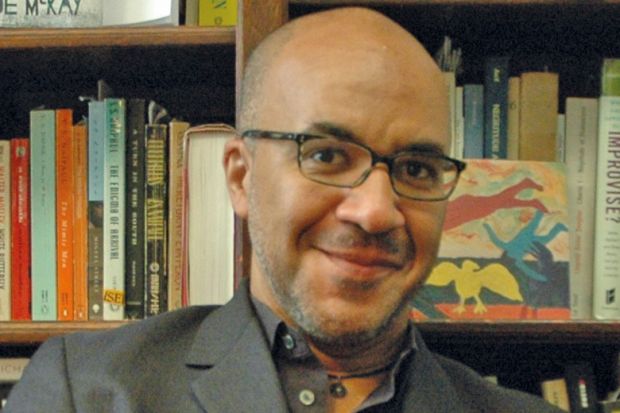What sorts of books inspired you as a child?
I read voraciously as a child, everything from novels to poetry to Tintin comics to books on the history of baseball. When I was about 11, a neighbour gave me his collection of Sports Illustrated back issues, and I devoured some of the previous decade’s best sports journalism. Around the same time, I read Louise Fitzhugh’s Harriet the Spy and was struck by the title character’s determination to read the entire Sunday New York Times every weekend – so I started trying to do that, too. I’ve been enjoying rediscovering children’s classics reading to my young children: C. S. Lewis’ Chronicles of Narnia; E. L. Konigsburg’s From the Mixed-Up Files of Mrs. Basil E. Frankweiler; Roald Dahl’s Danny, the Champion of the World (which I have fond memories of my father reading to me); and E. B. White’s The Trumpet of the Swan.
Your new book ‘Epistrophies’ explores ‘jazz and the literary imagination’. What were the first writings about jazz or its milieu that attracted your interest?
I discovered Langston Hughes’ poetry and Ralph Ellison’s Invisible Man as a teenager; but perhaps the most important catalysts were two books I discovered in college: Black Music, Amiri Baraka’s 1967 collection of articles and record reviews, and Bedouin Hornbook, Nathaniel Mackey’s 1986 serial epistolary fiction, both of which I used as discographical prompts and listening guides. But I was also fascinated with writings by musicians, from interviews to liner notes on LPs (which I discuss in Epistrophies) to autobiographies such as Charles Mingus’ Beneath the Underdog.
Which books do you believe capture most vividly the experience of listening to music?
Ralph Ellison’s essays (collected in Living with Music); James Baldwin’s story Sonny’s Blues; Gayl Jones’ novel Corregidora; Geoff Dyer’s But Beautiful; Fred Moten’s The Feel Trio; and Chapter 23 of Julio Cortázar’s Hopscotch.
Which books about or by musicians would you recommend?
Sidney Bechet’s Treat It Gentle; George Lewis’ A Power Stronger Than Itself: The AACM and American Experimental Music; Louis Armstrong, In His Own Words; John Cage’s Silence; The Glenn Gould Reader; Jean-Jacques Schuhl’s Ingrid Caven; and Robin Kelley, Thelonious Monk: The Life and Times of an American Original.
What was the last book you gave as a gift, and to whom?
One of my favourite works of jazz literature (and a book I write about in Epistrophies) is Coming through Slaughter, Michael Ondaatje’s brilliant and kaleidoscopic 1976 novel about the legendary New Orleans cornetist Buddy Bolden. I recently gave a copy to my friend the novelist Valeria Luiselli, some of whose work has a similar fragmented form and archival sensibility.
What books do you have on your desk waiting to be read?
Marlon James’ A Brief History of Seven Killings; Anne Carson’s Float; Darby English’s 1971: A Year in the Life of Color; Clarice Lispector’s The Complete Stories; Leah Dickerman and Achim Borchardt’s Robert Rauschenberg; and Scholastique Mukasonga’s Coeur Tambour.
Brent Hayes Edwards is professor of English and comparative literature at Columbia University and the author of Epistrophies: Jazz and the Literary Imagination.
POSTSCRIPT:
Print headline: Shelf life
Register to continue
Why register?
- Registration is free and only takes a moment
- Once registered, you can read 3 articles a month
- Sign up for our newsletter
Subscribe
Or subscribe for unlimited access to:
- Unlimited access to news, views, insights & reviews
- Digital editions
- Digital access to THE’s university and college rankings analysis
Already registered or a current subscriber? Login



